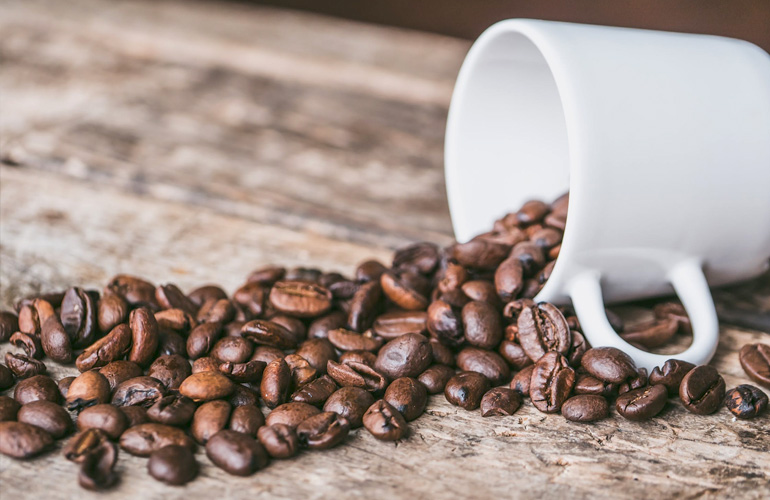19 Items for Bartering After SHTF

It’s a common topic of conversation among preppers, survivalists, and doomsday theorists. The idea that when government currency is either no longer available, or is no longer considered to hold any inherent value, people will begin trading goods or services for other goods or services. Instead of paying a set amount of cash for a thing you need, you would trade for it with something the other party needs.
The question that always comes up when speaking on the topic of bartering, particularly in a post-collapse environment, is “What sort of things would make for good barter items that I should keep on hand?” So this article aims to provide several examples of items, some obvious and some not-so-obvious, that people may find valuable for bartering.
1. Silver

When thinking about barter items, I tend to break it down into two categories. The first category is “Items that effectively take the place of currency”. These are things that are valuable primarily for being recognized as valuable. The most common things that fit into this category are, of course, precious metals. While gold is relatively common, silver seems to be the preferred precious metal of the prepper community. As I see it, there are two reasons for this.
- Silver is known to have certain practical uses in addition to being regarded as a form of currency (such as in medical applications due to its antibiotic properties).
- It’s less expensive and easier to acquire in smaller (cheaper) quantities.
Not only is gradually stockpiling silver something that more people can afford than buying gold in the same quantities, it’s arguably easier to trade silver for items because the denominations are smaller. For example, I’m not going to trade a 1-ounce gold bar for a few gallons of gasoline. But I would certainly consider trading an ounce or two of silver.
As long as precious metals like silver is still generally regarded as having inherent monetary value, it can likely be used as a currency with which to purchase things.
“Needs” vs “Wants”
The second category of bartering items encompasses things that don’t necessarily have an inherent monetary value, but are considered valuable because somebody wants or needs it. Within this category, I would break it down further into “needs” and “wants”. There are certain things which every human needs to survive. There are other things which aren’t necessary to survival, but sure make it a lot more bearable.
2. Water and Food

These are self-explanatory. Everyone’s got to have it. We’d hope that everybody has the means to collect, store, and/or purify their own water… but we know that isn’t always the case. If your neighbor is in desperate need of water and is willing to trade you something in exchange for a bit of your surplus, that’s a barter. Food is likely even harder to come by if you are among the under-prepared. Many of us wouldn’t exactly get excited at the prospect of giving away our food unless it’s in exchange for something of extreme importance. But it’s one of the most basic needs, and therefore barter items, there is.
3. Fuel

Somewhere between a need and a want, fuel will be both invaluable and scarce very quickly after the supply chain grinds to a halt. Gasoline, diesel, propane, kerosene, butane. It will all be in short supply. Lots of people aren’t going to be able to find fuel for their vehicles, generators, stoves, or anything else, and they may be willing to make a pretty attractive trade for some of yours.
4. First Aid/Medical Supplies

Whether it’s basic first-aid kits or more specialized medical supplies, this is the sort of thing that nobody hopes to need. But when you do need it, you really need it. Keeping a surplus of such items may present opportunity (either by helping save a life, or by trading for something you desperately need. Hopefully you keep all the basics on hand, including common drugs like aspirin and Ibuprofen. It can be trickier to have a supply of commonly-prescribed medications like antibiotics or narcotics. Even keeping a stash of the basic over-the-counter meds puts you at an advantage most people probably don’t think about. After all, many of these cheap, OTC meds that we take for granted nowadays were the difference between life and death a couple hundred years ago.
5. Ammunition

If ever there were a potential barter item that I would be very hesitant to part with, it would be my ammo. You can collect more water. You can grow more food. But Mother Earth doesn’t provide bullets! I don’t need to tell you why ammo is important and valuable, particularly in the absence of law enforcement and civilized society. Aside from how valuable it is to me, I don’t love the idea of a trade that literally arms a person who I cannot help but see as a competitor and possible threat. Nevertheless, if you are desperate for something and have ammo to spare, we can’t dismiss its potential as a valuable barter item.
6. Alcohol

This sits somewhere between a “want” and a “need”, depending on the individual in question. As I’m not a heavy drinker, I consider alcohol primarily a luxury item. I’ve got my first-aid basics covered, so I don’t need to see a bottle of hooch as an antiseptic or similar. Generally, I look at alcohol as one of those things that aren’t needed, but something that can make a bad situation feel a lot more tolerable. Obviously a person who is dependent on alcohol would be willing to trade much of what he has for a bottle. And while I don’t exactly advocate for exploiting a desperate person to advance your own agenda, one should recognize opportunity and understand his options in a survival situation. If I need an antibiotic and the only person in town who has some happens to be an alcoholic, well then I’m quite sure we have ourselves a trade. I tend to have a few bottles of whiskey on hand at any given time, either given to me as a gift or purchased on sale for a good price. Hopefully the guy with the antibiotics isn’t a gin man!
7. Tobacco

Similar to alcohol, this can be looked at as a luxury item or a necessity, depending on who you ask. A heavy smoker might be willing to trade some needed wares for a pound of loose tobacco and some rolling papers/tubes. Though I don’t keep much on hand these days, I have experimented with preserving and storing tobacco. By the way, the best results I had came from vacuum-sealing the loose tobacco in mason jars. I do not recommend vacuum-sealing in bags, unless you want to end up with a flat brick of stale tobacco.
8. Marijuana

I’m sure I don’t need to expand much on this one. Like alcohol and tobacco, a recreational user might be happy to strike up a trade. On the other hand, the medicinal value of marijuana may prove to be a more valuable factor. My advice if you’re thinking about stocking up for SHTF: Make sure you live in a place where you can do it legally. The last thing you want is to get caught with several pounds and get caught-up with an “intent to distribute” rap.
9. Coffee

Oh how I would miss my coffee if I could no longer get my hands on any. Whether or not you are addicted to caffeine, a hot cup of coffee has a way of making everything seem ok. If there is one item in the “wants” category of things that I go out of my way to stock up on, it’s coffee. You can store a vacuum-sealed container of coffee grounds for quite some time. Even longer if you buy instant freeze-dried coffee (hey, desperate times/desperate measures, right?)
10. Batteries

How many things in your survival kit need batteries? Lights, radios, fans. Any disaster preparedness plan will advise you to keep plenty of batteries on hand, but how many people do? If the price was right, I would consider trading some of my stock.
11. Toilet Paper

An item that I think it often overlooked is one of the most basic things there is. It’s so ubiquitous that it’s actually forgotten. And for those who didn’t forget, I get it: Toilet paper sucks to stockpile. It’s big and bulky. It’s round, so you waste space between each roll. Rolls are flimsy and squishy, and you can only stack them so high. It’s susceptible to moisture damage, dry rot, and pests. But do yourself a favor: Stock as much as you can. Think about your own needs, and think about the bartering potential. What would an average suburbanite on day 20 of a grid-down scenario be willing to give for a roll of clean TP?
12. Cold-Weather Gear

Gloves, blankets, hats, coats, socks. Particularly for people who are on the move because they had to leave home, or were stuck out of town when disaster hit, anybody caught in cold temperatures will need gear.
13. Firewood

How many of your neighbors have enough firewood to last them through winter? I bet it’s approximately zero. If trading something precious is worth staying alive for the next few nights, bartering with firewood could be a lucrative deal. Just be sure not to cut your own supply too short!
14. Hygiene Products

Soap, toothpaste, deodorant, shampoo, laundry detergent. We can do without these things for quite some time if we have to, but sanitation is important. In desperate times, some may consider them luxury items while others think of them as bare necessities. Either way, they make for good barter items. And my guess is that feminine hygiene products will be worth their weight in gold once the store shelves are empty.
15. Pet Food

Even many of the preppers I know haven’t put enough thought into feeding their four-legged family members. Just like me, my dog needs to eat every day. And since I’ll sooner die than watch my best friend suffer, that means prepping for her as well. Of course your furry friends can eat “people food” if they have to, but packaged dog and cat food contains all the nutritional requirements that those critters need. Unfortunately, dry kibble doesn’t last an incredibly long time when stored. The fats can go rancid, and it gets very stale. The alternative is canned food, which can last a long time just as it can with “people food”. Alternatively, you can learn about dietary requirements for your pets and keep those ingredients on hand. Mix some bone meal into a bowl of ground venison, and you got yourself some top-notch dog chow!
16. Tools

Basic hand tools, hunting tools, cutlery. Somebody needs one and you happen to have two, it’s a barter made in heaven.
17. Entertainment

Most of us don’t have an appreciation for how much constant stimulation and entertainment are flying at us on a daily basis until we have a power outage for a few hours. In this day and age, most people will face absolute madness after a short time with no electricity, WiFi, Netflix, or social media. Small pleasures and simple entertainment will go a long way when it starts to set in. Things like playing cards, board games, and puzzle books can keep minds active and pass the time.
18. Light

Flashlights, candles, lanterns, torches. It can get awfully dark with no electricity, and most people don’t know how to function without it.
19. Parts

Car parts, appliance parts, machine parts, generator parts. Parts to a guitar, parts for a gun, parts for a windmill, parts for a garden tractor. The more prepared you are, the more stuff you have that could break. Specialty items like specific parts for a specific model of something will be in hot demand when you can’t go to the store or buy one online. Though they’re not valuable except to the person who needs it, you never know when that person will come along and need that particular thing that you just happen to have laying around in your garage.

